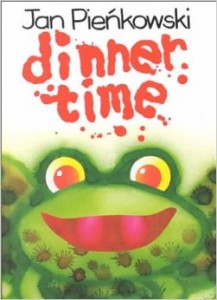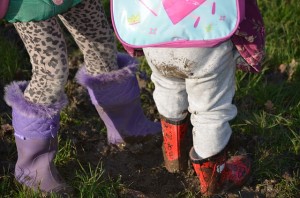What do you think is the most important thing that you do with your kids? Would you have known that it’s eating dinner–or sometimes called supper–with them? Family therapist and professor of Psychology at Harvard Medical School, Anne Fishel says “…sitting down for a nightly meal is great for the brain, the body and the spirit.” Her Washington Post article has some interesting food for thought.
According to research on what’s happening around the mealtime table, “…for young children, dinnertime conversation boosts vocabulary even more than being read aloud to.” This is very significant because the size of a child’s vocabulary is related to how easily that child learns to read. Children’s books often contain fairly limited or simple words whereas the family’s conversation will have lots of new and different words. “Young kids learned 1,000 rare words at the dinner table, compared to only 143 from parents reading storybooks aloud.”
More than food and words are on plates. Kids will be listening to the adult conversation and, perhaps, older brothers and sisters. There will be a variety of language structures and complexity. It’s like kids get a whole meal of language along with the food. There are some quick and easy appies, some ‘meat’ to what ever is being talked about, and some dessert in the form of sweet, new words and ways to use language.
 One topic of conversation at many tables will be the weather. Just think of all the words related to cold: freezing, rainy, windy, icy, miserable, snowing, sleet, weather warning, storm watch, cool, chilly, and wet. Fortunately, there are lots of words for warm and hot, and sunny or cloudy. One night, Little Sister heard the fog horn and her mom remarked, “Oh, it must be foggy.” Little Sister replied, “It not foggy. Foggy go wibbet, wibbet.” What will your family talk about at the dinner table?
One topic of conversation at many tables will be the weather. Just think of all the words related to cold: freezing, rainy, windy, icy, miserable, snowing, sleet, weather warning, storm watch, cool, chilly, and wet. Fortunately, there are lots of words for warm and hot, and sunny or cloudy. One night, Little Sister heard the fog horn and her mom remarked, “Oh, it must be foggy.” Little Sister replied, “It not foggy. Foggy go wibbet, wibbet.” What will your family talk about at the dinner table?

